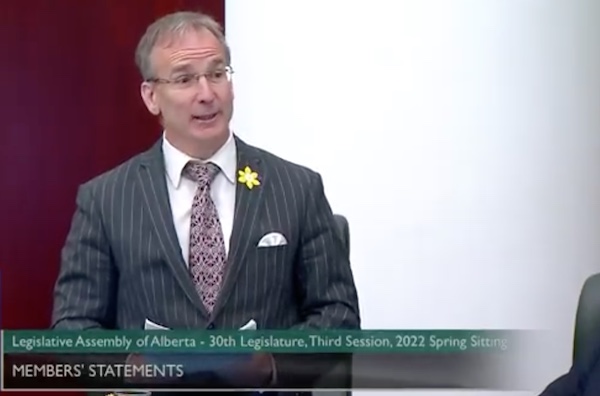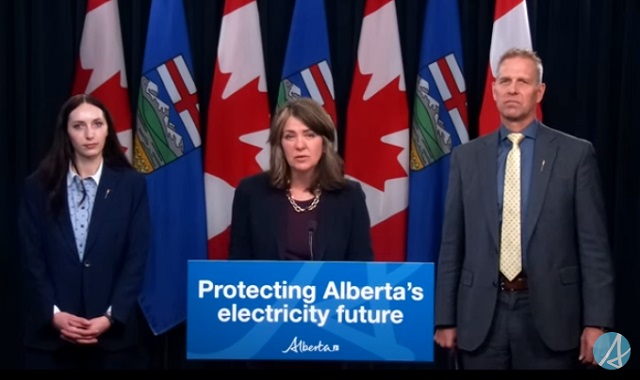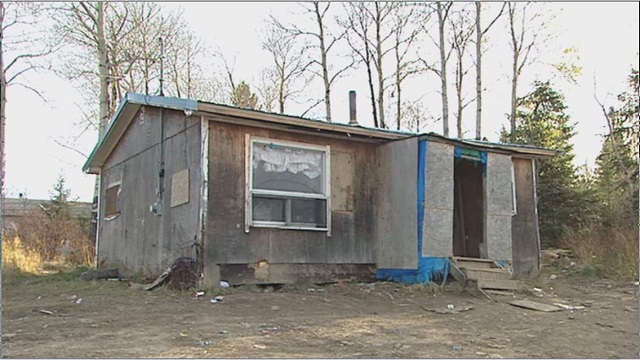Alberta
It’s time for the Alberta Sovereignty Act – Red Deer South MLA Jason Stephan

This article submitted by Red Deer South MLA Jason Stephan
THE ALBERTA SOVEREIGNTY ACT IS GOOD FOR ALBERTA
I supported the concept of the Alberta Sovereignty Act before the UCP leadership race. It was developed by the Free Alberta Strategy. I participated in their townhalls supporting their strategies, as did two of the UCP leadership candidates, Danielle Smith and Todd Loewen. Jason Kenney and his cabinet ministers did not.
What is the Alberta Sovereignty Act?
The Sovereignty Act affirms Alberta’s right to refuse and reject Federal Government actions or laws that intrude into provincial areas of jurisdiction or attack the interests of Alberta.
Ottawa recently released a “discussion paper” seeking to limit, or impose additional carbon taxes on, oil and gas development. This is not an isolated incident; this is a pattern of hostile behavior from Ottawa seeking to attack and take advantage of Alberta, holding it back.
Albertans should be aware that this discussion paper is likely a pretext, an excuse to either take more money from Alberta or prevent it from excelling ahead of other provinces.
Albertans should be aware that at any time Ottawa may leverage the Supreme Court of Canada decision permitting carbon taxes, overruling our Court of Appeal describing Ottawa’s carbon taxes as a “constitutional trojan horse”, to impose a targeted windfall or carbon tax on Alberta’s natural resources that discriminates and disproportionately punishes Alberta while sparing Ontario and Quebec from burden or harm.
The Supreme Court of Canada says carbon taxes are a tool that Ottawa has its disposal at any time to punish Alberta, yet under section 92A of the Constitution Act, Alberta has jurisdiction over its natural resources, not Ottawa.
The Alberta Sovereignty Act should be invoked to reject the “discussion paper” and tell Ottawa to leave Alberta and its constitutional jurisdiction alone.
The unfortunate truth is that Ottawa has made itself an unpredictable and hostile variable, a threat to the freedom and prosperity of Alberta businesses and families that should not be underestimated.
Alberta is compelled to protect itself.
Does the Establishment like the Alberta Sovereignty Act? No. Many Eastern politicians and their media pundits do not like the Alberta Sovereignty Act. It challenges the status quo they benefit under.
Their status quo has enabled a pattern of abuse and economic warfare on Alberta, disrespecting its jurisdiction over its resources, creating chaos and injecting commercial uncertainty, chasing away billions in private sector investments and thousands of Alberta jobs.
Albertans are becoming more aware that this is a rigged partnership. Alberta businesses and families give hundreds of millions more to Ottawa than they receive in return, with Ottawa using our money, not to benefit Alberta, but for political gain, primarily in Quebec, the structural welfare recipient under the partnership. Equalization is one of the devices that Ottawa uses for this purpose.
Albertans want change. Alberta held an equalization referendum. Ottawa ignored the result –to them Alberta is means to an end, they want our money. Strongly worded letters from Alberta politicians have accomplished nothing. It is time for less words and more actions.
Boundaries are reasonable and normal.
Boundaries are integral to adult relationships. The Alberta Sovereignty Act seeks to impose boundaries that Ottawa continually disrespects, to discriminate, attack, and force itself into Alberta’s constitutional jurisdictions.
Some of the UCP leadership candidates say the Alberta Sovereignty Act will produce chaos. They are wrong. It is a morally and fiscally bankrupt Ottawa, a trillion dollar plus fiscal train wreck, that is producing chaos. Ottawa is the risk that we can no longer afford, not a law that seeks to do something about it!
The Alberta Sovereignty Act is good for Alberta. Wisely applied it can help protect the Alberta Advantage, as the most attractive Canadian jurisdiction to start and grow a business, to work and raise our families. Alberta is a land of freedom and opportunity for us and our children. We must be vigilant to keep it that way.
The deadline to become a member of the United Conservative Party to vote in this leadership race is this Friday, August 12. We invite all Alberta conservatives to become a member of the party, to vote and have your say on who will be the next leader and Premier of Alberta!
You can buy a membership here, or check if your membership is up-to-date here.
Alberta
Province to stop municipalities overcharging on utility bills

Making utility bills more affordableAlberta’s government is taking action to protect Alberta’s ratepayers by introducing legislation to lower and stabilize local access fees. Affordability is a top priority for Alberta’s government, with the cost of utilities being a large focus. By introducing legislation to help reduce the cost of utility bills, the government is continuing to follow through on its commitment to make life more affordable for Albertans. This is in addition to the new short-term measures to prevent spikes in electricity prices and will help ensure long-term affordability for Albertans’ basic household expenses.
Local access fees are functioning as a regressive municipal tax that consumers pay on their utility bills. It is unacceptable for municipalities to be raking in hundreds of millions in surplus revenue off the backs of Alberta’s ratepayers and cause their utility bills to be unpredictable costs by tying their fees to a variable rate. Calgarians paid $240 in local access fees on average in 2023, compared to the $75 on average in Edmonton, thanks to Calgary’s formula relying on a variable rate. This led to $186 million more in fees being collected by the City of Calgary than expected.
To protect Alberta’s ratepayers, the Government of Alberta is introducing the Utilities Affordability Statutes Amendment Act, 2024. If passed, this legislation would promote long-term affordability and predictability for utility bills by prohibiting the use of variable rates when calculating municipalities’ local access fees. Variable rates are highly volatile, which results in wildly fluctuating electricity bills. When municipalities use this rate to calculate their local access fees, it results in higher bills for Albertans and less certainty in families’ budgets. These proposed changes would standardize how municipal fees are calculated across the province, and align with most municipalities’ current formulas.
If passed, the Utilities Affordability Statutes Amendment Act, 2024 would prevent municipalities from attempting to take advantage of Alberta’s ratepayers in the future. It would amend sections of the Electric Utilities Act and Gas Utilities Act to ensure that the Alberta Utilities Commission has stronger regulatory oversight on how these municipal fees are calculated and applied, ensuring Alberta ratepayer’s best interests are protected.
If passed, this legislation would also amend sections of the Alberta Utilities Commission Act, the Electric Utilities Act, Government Organizations Act and the Regulated Rate Option Stability Act to replace the terms “Regulated Rate Option”, “RRO”, and “Regulated Rate Provider” with “Rate of Last Resort” and “Rate of Last Resort Provider” as applicable. Quick facts
Related information |
Alberta
Alberta moves to protect Edmonton park from Trudeau government’s ‘diversity’ plan

From LifeSiteNews
If Trudeau’s National Urban Park Initiative is implemented, Alberta could see its parks, including Edmonton’s River Valley, hijacked by the federal government in the name of ‘sustainability, conservation, equity, diversity, inclusion, and reconciliation.’
Edmonton is working to protect its River Valley from the Trudeau government’s “diversity” park plan.
On April 15, Alberta Legislature passed MLA Brandon Lunty’s private members’ Bill 204 to protect the Edmonton River Valley from Prime Minister Justin Trudeau’s National Urban Park Initiative which would give the federal government power over provincial parks to enforce a variety of quotas related to the “climate” and “diversity.”
“Albertans elected our United Conservative government with a majority mandate to, among other things, protect families and communities from federal overreach and intrusion. That’s exactly what this bill accomplishes,” Lunty said in a press release.
Bill 204, titled the Municipal Government (National Urban Parks) Amendment Act, is a response to the National Urban Park Initiative which would give the Trudeau government jurisdiction over Alberta’s provincial parks.
The Trudeau government’s plan promises to “provide long-lasting benefits to the urban area” by using “sustainability, conservation, equity, diversity, inclusion, and reconciliation.”
If the program is approved, the Edmonton River Valley could be “fully owned by the Federal Government,” which will use the space to advance their values, including addressing the impacts of “climate change” and creating spaces where “diversity is welcomed.”
The plan also promises that equity will be “intentionally advanced” while “respecting indigenous rights” through “reconciliation.”
However, many Edmonton citizens were concerned with the Urban Park Initiative and met with their MLAs to discuss the issue.
Edmonton citizen Sheila Phimester worked with MLA Jackie Lovely to create a petition to prevent the River Valley from becoming federally owned. The petition has received over 5,000 signatures.
“Instead of Edmontonians making decisions about what happens in the park, Ottawa would be making the decisions,” the petition warned.
“Oh, and because it’s the federal government, their ‘priorities’ for these parks are ‘healthier communities’, ‘climate resilience’, ‘reconciliation’, ‘equity’, ‘diversity’, and ‘inclusion,’” it continued.
Already, Trudeau has attempted to assert power over Alberta’s industry by placing “climate” restrictions on their oil and gas production in an attempt to force net-zero regulations on all Canadian provinces, including on electricity generation, by as early as 2035.
However, Alberta Premier Danielle Smith has repeatedly vowed to protect the province from Trudeau’s radical “net zero” push.
In December, Alberta Premier Danielle Smith blasted Trudeau’s Environment Minister Steven Guilbeault’s plan to slash oil and gas emissions by 35 percent to 38 percent below 2019 levels as “unrealistic” and “unconstitutional.”
Trudeau’s current environmental goals are in lockstep with the United Nations’ “2030 Agenda for Sustainable Development” and include phasing out coal-fired power plants, reducing fertilizer usage, and curbing natural gas use over the coming decades.
The reduction and eventual elimination of the use of so-called “fossil fuels” and a transition to unreliable “green” energy has also been pushed by the World Economic Forum (WEF) – the globalist group behind the socialist “Great Reset” agenda – an organization in which Trudeau and some of his cabinet are involved.
In November, after announcing she had “enough” of Trudeau’s extreme environmental rules, Smith said her province had no choice but to assert control over its electricity grid to combat federal overreach by enacting its Sovereignty Act. The Sovereignty Act serves to shield Albertans from future power blackouts due to federal government overreach.
Unlike most provinces in Canada, Alberta’s electricity industry is nearly fully deregulated. However, the government still has the ability to take control of it at a moment’s notice.
-

 Brownstone Institute17 hours ago
Brownstone Institute17 hours agoDeborah Birx Gets Her Close-Up
-

 Jordan Peterson2 days ago
Jordan Peterson2 days agoJordan Peterson slams CBC for only interviewing pro-LGBT doctors about UK report on child ‘sex changes’
-

 Economy2 days ago
Economy2 days agoExtreme Weather and Climate Change
-

 Bruce Dowbiggin2 days ago
Bruce Dowbiggin2 days agoWhy Are Canadian Mayors So Far Left And Out Of Touch?
-

 National2 days ago
National2 days agoCanada’s Governor General slammed for hosting partisan event promoting Trudeau’s ‘hate speech’ bill
-

 Frontier Centre for Public Policy2 days ago
Frontier Centre for Public Policy2 days agoThe Smallwood solution
-

 International2 days ago
International2 days agoTelegram founder tells Tucker Carlson that US intel agents tried to spy on user messages
-

 Alberta2 days ago
Alberta2 days agoDanielle Smith warns arsonists who start wildfires in Alberta that they will be held accountable






